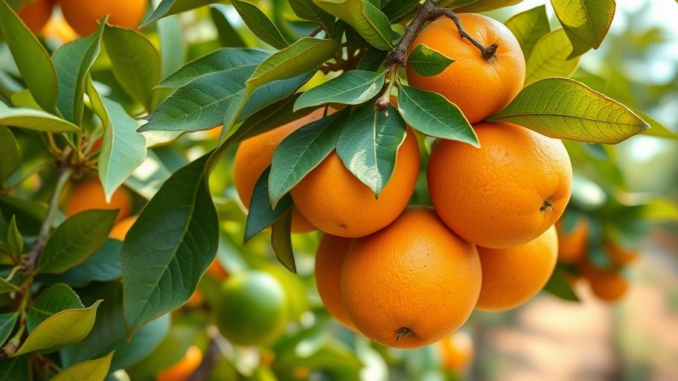
Summary
A guide to selecting the perfect fruit trees for your orangery, focusing on size, climate needs, and maintenance to enhance well-being.
Elegancia: Beautiful orangeries, increased property value.
** Main Story**
Creating a fruitful and healthy environment in your orangery? It all starts with selecting the right fruit trees. Let me share some practical advice on choosing trees based on your orangery’s size, your climate, while always keeping maintenance needs top of mind. Trust me, incorporating these tips will transform your orangery into a personal oasis, boosting both your physical and mental well-being. Who wouldn’t want that, right?
An orangery provides a unique environment to cultivate fruit trees. Extending the growing season is just one of the perks! Plus, you gain a profound connection to nature right within your home. Choosing the right trees? Well, that involves a few key considerations to ensure they thrive and, ultimately, enhance your overall wellness.
Size and Space:
First things first, assess the available space within your orangery. If you’re working with a smaller space, dwarf varieties of fruit trees – think Calamondin orange or Meyer lemon – are excellent choices. These compact trees offer a manageable size without skimping on fruit production. Standard-sized citrus trees, like Valencia oranges, though? They need more elbow room, and you might find yourself pruning them regularly to keep them in check. Always consider the mature height and width of the tree, making sure it fits comfortably without turning your orangery into a jungle. You don’t want that.
Now, if your orangery boasts ample space, then let’s talk options! Ever considered a Sylvia cherry tree? Not only does it give you delicious sweet cherries, but it also puts on a stunning blossom display in the spring. Talk about upping the aesthetic appeal of your orangery. And, fig and banana trees! Known for shrugging off temperature fluctuations, they add a touch of the exotic to larger orangeries. They don’t mind the odd cold snap.
Climate Considerations:
Look, orangeries offer some protection from harsh weather, but understanding your local climate is still key. Oranges and lemons? They can handle slightly cooler temperatures. Limes, on the other hand, demand warmer, almost tropical conditions. So, if you’re in a cooler climate, focus on the hardier citrus varieties, or even explore that Sylvia cherry tree – it’s a real trooper in temperate climates.
Supplemental heating, maybe underfloor heating, can really help keep a consistent temperature going during those winter months, especially for those more sensitive fruit trees. But, don’t forget about ventilation! It’s essential year-round to keep pest issues at bay and promote healthy air circulation. Automated roof vents are great for this. Convenient, too, regulating both temperature and humidity, especially when those warmer months roll around. It’s worth the investment.
Maintenance and Care:
Honestly, consider how much time you have and how willing you are to maintain your fruit trees. Dwarf varieties generally need less pruning and shaping compared to their standard-sized cousins. Citrus trees? They love regular feeding! Use a nitrogen-rich fertilizer during the growing season, and then switch to a balanced fertilizer in the winter.
Now, consistent watering is a must, but be careful not to overdo it. Overwatering can lead to root rot, and nobody wants that. Terracotta pots? They’re ideal for citrus trees. They allow for proper drainage and aeration. Regular check the soil moisture, especially when it’s hot out, and make sure those trees are getting enough to drink.
Enhancing Wellness:
The benefits of growing fruit trees in your orangery? They go way beyond just having fresh produce. The vibrant colors, the fragrant blossoms, and even the act of nurturing these trees create a therapeutic, relaxing atmosphere. Turns out, studies show that interacting with nature can actually reduce stress, improve your mood, and boost your overall well-being. Pretty cool, huh?
That scent of citrus blossoms? It has a calming effect. And, anticipating the harvest of your own fruit? It just adds a sense of accomplishment and a deeper connection to nature. It creates a small orangery orchard, a sanctuary for relaxation and rejuvenation, and fostering a deeper appreciation for the natural world, I think it’s worth every effort.


Be the first to comment